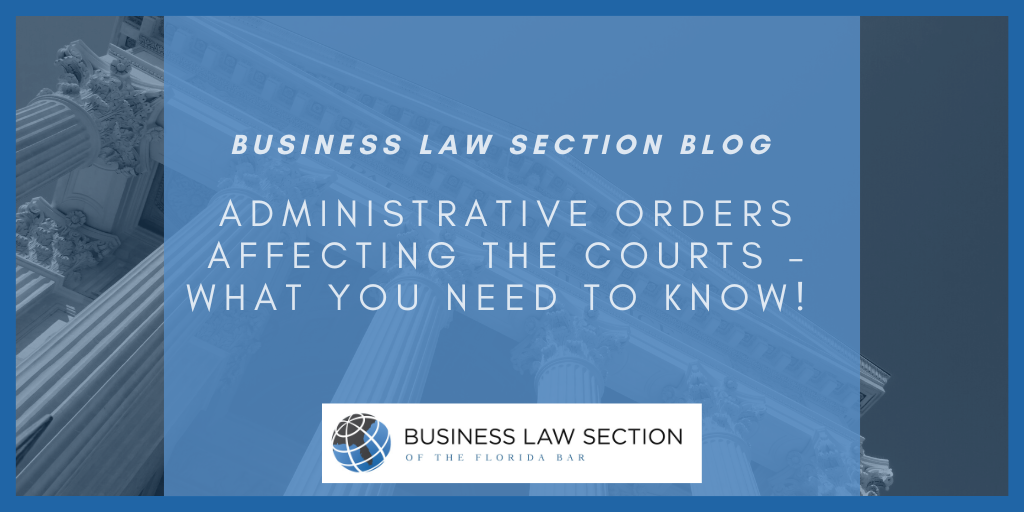By Joseph Coleman, Coleman Litigation PA
When considering whether reasonable attorney’s fees may be recoverable in any civil action, we as practitioners understand the oft recited and well settled “American Rule”: that each litigant is responsible for their own attorney’s fees regardless of how the case is ultimately decided. Johnson v. Omega Ins. Co., 200 So.3d 1207, 1214 (Fla. 2016) (citing State Farm Fire & Cas. Co. v. Palma, 629 So.2d 830, 832 (Fla. 1993)). If you know the American Rule, you are likely just as familiar with its two biggest exceptions: that attorney’s fees are awardable to the prevailing party either by contract or by statute, if the contract or statute includes a prevailing party provision. Florida Patient’s Compensation Fund v. Rowe, 472 So.2d 1145, 1148 (Fla. 1985).
If a litigant is contractually entitled to their attorney’s fees, then there must be a valid contract, right? Well, that is not always the case. In Katz v. Van Der Noord, the Florida Supreme Court addressed this exact issue, and recognized a distinction based upon whether the contract at issue ever existed. Katz v. Van Der Noord, 546 So.2d 1047, 1050 (Fla. 1989). If the contract never existed, then attorney’s fees based on that contract are not recoverable. Id. However, if the contract was valid and then later rescinded or deemed unenforceable, then attorney’s fees are still recoverable under the now rescinded or otherwise unenforceable agreement. Id. A good example is a claim for fraudulent inducement. If a fraudulent inducement claim is successful, it will likely prevent the contract from being enforced. However, that does not mean the contract was never enforceable. Id. (citing Leitman v. Boone, 439 So.2d 318, 321 n.3 (Fla. 3d DCA 1983). The issue is not whether the contract is still enforceable, but instead whether the contract could ever be enforced in the first place.
This issue recently came up again in Maisonneuve v. Situs Investments, LLC, 326 So.3d 707 (Fla. 4th DCA 2021). In Maisonneuve, the mortgagors executed a mortgage with the original lender. 326 So.3d at 708. The mortgage included an attorney’s fee’s clause. Id. The mortgage was then assigned multiple times, until it was finally assigned to the mortgagee. Id. The mortgagee sued the mortgagors to foreclose on the mortgage. Id. However, the last mortgage payments were due in 2011, and pursuant to §95.11(2)(c), Fla. Stat. (2011), Plaintiff should have sued Defendants within five years of the last payment, or by 2016; instead, Plaintiff originally sued in 2018. Id. Defendants argued the statute of limitations barred Plaintiff’s foreclosure, and Defendants moved for summary judgment. Id. The trial court granted Defendants’ motion for summary judgment. Id. Defendants moved for attorney’s fees and costs as the prevailing party under the mortgage. Id. The trial court denied the defendant’s motion for attorney’s fees and costs, citing Deutsche Bank Trust Co. v. Page, 274 So.3d 1116 (Fla. 4th DCA 2016), decision quashed, 308 So.3d 953 (Fla. 2020). In Deutsche Bank Trust Co., the Fourth District Court of Appeal held when “the mortgagor prevails by proving that the foreclosing plaintiff did not have standing to bring the foreclosure action, the mortgagor [is] not entitled to attorney’s fees pursuant to section 57.105(7), and the mortgage contract.” Id. at 709. However, in 2020, the Florida Supreme Court quashed the Fourth District Court’s decision in Deutsche Bank Trust Co., instead holding a litigant may be entitled to recover attorney’s fees and costs under a contract as the prevailing party, even if the litigant prevails because they lack standing to sue or be sued under that same agreement. Id. (citing Page v. Deutsche Bank Trust Co. Americas, 308 So.3d 953 (Fla. 2020)).
Defendants appealed the trial court’s order denying their motion for attorney’s fees and costs to the Florida Fourth District Court of Appeal. Id. Applying Page and Katz, the Fourth District correctly held that even though the mortgagee’s claim was barred by the applicable statute of limitations, the Defendants’ mortgage had still existed. Id. Therefore, Defendants were still entitled to their attorney’s fees and costs under the mortgage, even though Plaintiff could no longer sue to enforce the mortgage. The Fourth District reversed the trial court’s ruling denying Defendants’ motion for attorney’s fees and costs. Id.
What does this mean for the practitioner? First, your client may still be liable for paying attorney’s fees and costs even if the contract at issue is no longer enforceable. Second, if you represent a client seeking to invalidate or rescind an agreement, the client should still plead entitlement to attorneys’ fees and costs if the agreement sought to be invalidated still contains an attorney’s fees and costs provision.

